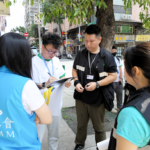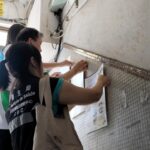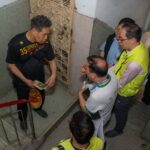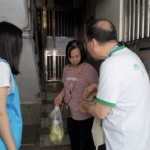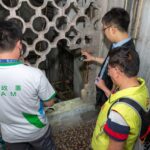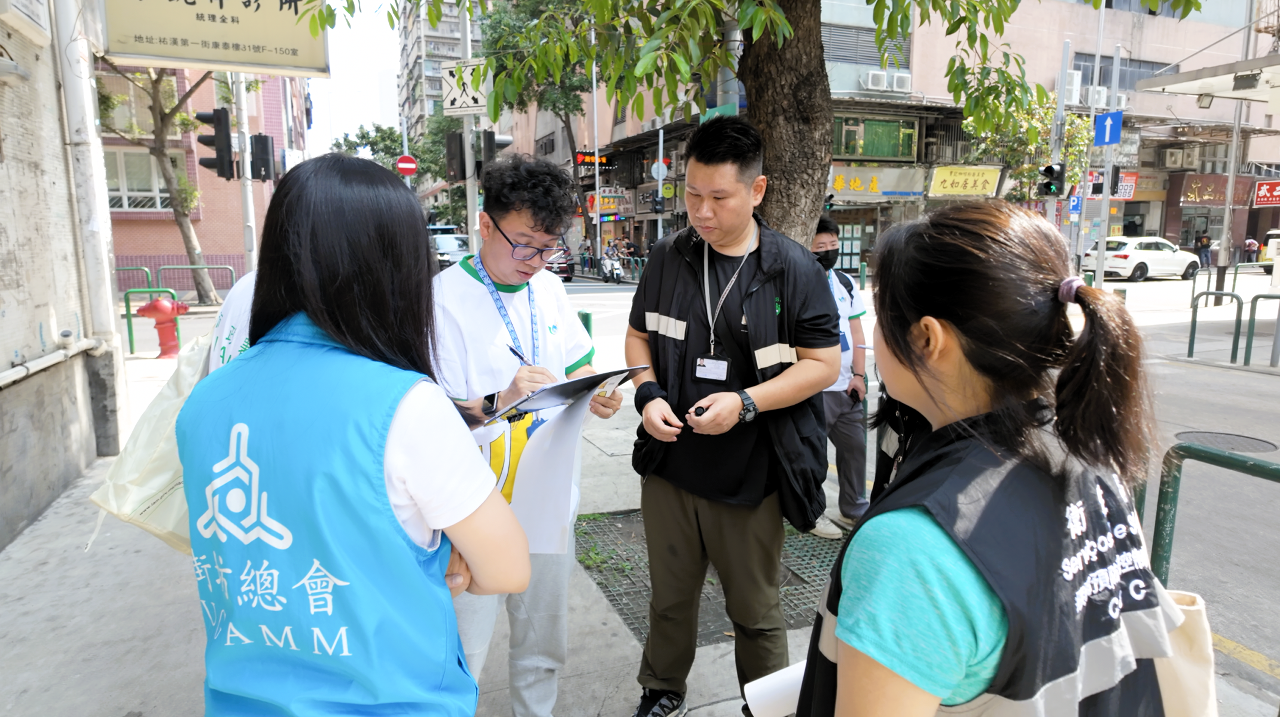 City beautification and sanitation working group visited over 100 “three no’s” buildings to encourage residents to actively improve hygiene of buildings
City beautification and sanitation working group visited over 100 “three no’s” buildings to encourage residents to actively improve hygiene of buildings
The environmental hygiene task force under the city beautification and sanitation working group strengthens the educational and inspection work in “three no’s” buildings in Macao. As members of the task force, the Municipal Affairs Bureau (IAM) and the Health Bureau visited “three no’s” buildings in multiple districts in Macao jointly with representatives from associations during the citywide cleanup campaign held from April to May. They educated residents about environmental hygiene and encouraged owners to improve the environmental hygiene conditions in the public areas of the buildings, so as to maintain the cleanliness and tidiness of the community environment.
The hygiene issues of “three no’s” buildings (i.e. buildings with no owner committee, no resident organisation and no management entity) have always been of great concern. Representatives of the interdepartmental working group and associations visited multiple “three no’s” buildings in traditional streets and areas in the northern district, Praia do Manduco and Interior Harbour districts in groups from late April. Up until 6 May, over 100 “three no’s” buildings have been inspected. The members of the working group raise residents’ awareness of environmental hygiene through affixing promotional posters on topics of maintaining environmental hygiene like rodent prevention and mosquito elimination, removing accumulated water, etc., distributing promotional leaflets and educating residents. The working group will cooperate with associations later to hold talks on the correct ways of rodent prevention and mosquito elimination for residents of “three no’s” buildings, so that they can proactively handle the hygiene issues they encounter in their daily lives and maintain the hygiene of their residential environment.
Several cases of household garbage accumulation in staircases and canopies of yards, as well as placement of miscellaneous objects and containers which may collect water on the rooftops, were found in “three no’s” buildings during the visits. The cases will be followed up by the competent authorities. The interdepartmental working group will coordinate and follow up on discovered hygiene issues or public hygiene hazards and encourage owners and residents to make improvements to jointly create a liveable environment.


